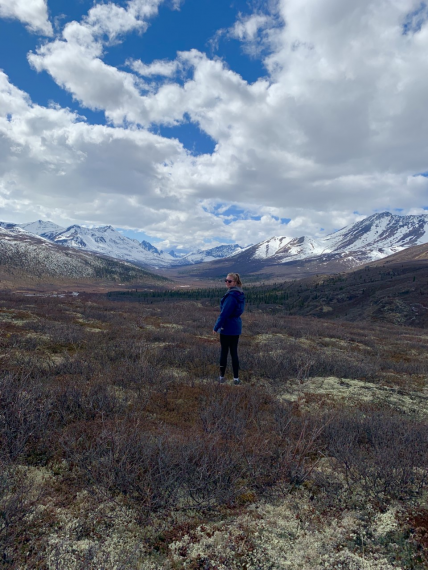Megan Botha

Year Graduated: 2020
Area of Emphasis: Rural and Agricultural Development
Other Education: Master’s in Social Justice and Community Engagement @ Wilfred Laurier University
Role at Time of Interview: Settlement Worker in Schools for Immigrant Services Guelph-Wellington
What would an average day at your role look like?
As a SWIS worker, my role is to support newcomer youth and their families as they transition to a new life here in the City of Guelph. If I am supporting a new family that has recently arrived, a day in my role could look like meeting the family in their designated school, ensuring school registration is complete, and providing them with an overview of all the supports and services available to them through our agency as well as provided by the City of Guelph. Some essential supports we provide are bus passes, language assessments, and employment support. If the family or youth I am working with require assistance in language, we can provide them with an interpreter to help bridge the gap and ensure they are fully understanding all the information that they are being provided with. Also, I primarily work in high schools and offer supports to newcomer youth, including planning activities, facilitating workshops on topics that may be interesting to them, and developing a youth leadership project that focuses on promoting intergenerational relationships with newcomer youth and seniors in the community. I definitely have the privilege of learning something new every day, from both the families I support and the people I work with.
What advice would you give to a current or prospective IDS undergraduate student?
“If you have the opportunity to take a course that might be out of your comfort zone, do it. I had the opportunity to take a geography course that I would not have normally taken, and it is due to this course that I developed a passion for using research and outreach work to advocate for Migrant Agricultural Workers here in Ontario, after learning about the barriers they face in this class. Also, if you have the opportunity for minor, do it. I personally never got to do a minor and I think I missed a great opportunity to gain a new skillset and learn about other topics that are interesting and can further your career options in the future. Oh! And if you’re able to take a field school, do it! Do a semester abroad or expand your horizons in any way possible, even if it’s a weeklong trip over reading week if you’re able to. I was extremely grateful to be able to study Social Business and Rural Poverty in Guatemala with Professor Kurt Annen, as well as participating in the Yukon Field school that focused on food security in Northern Canada with Dr. Sneyd. It was extremely eye opening having both a global perspective and having one in a more local context as well. Lastly, unpopular opinion, but if there’s an assigned book in an IDEV class that seems interesting, do the reading, because you will be surprised how much you learn from it.”